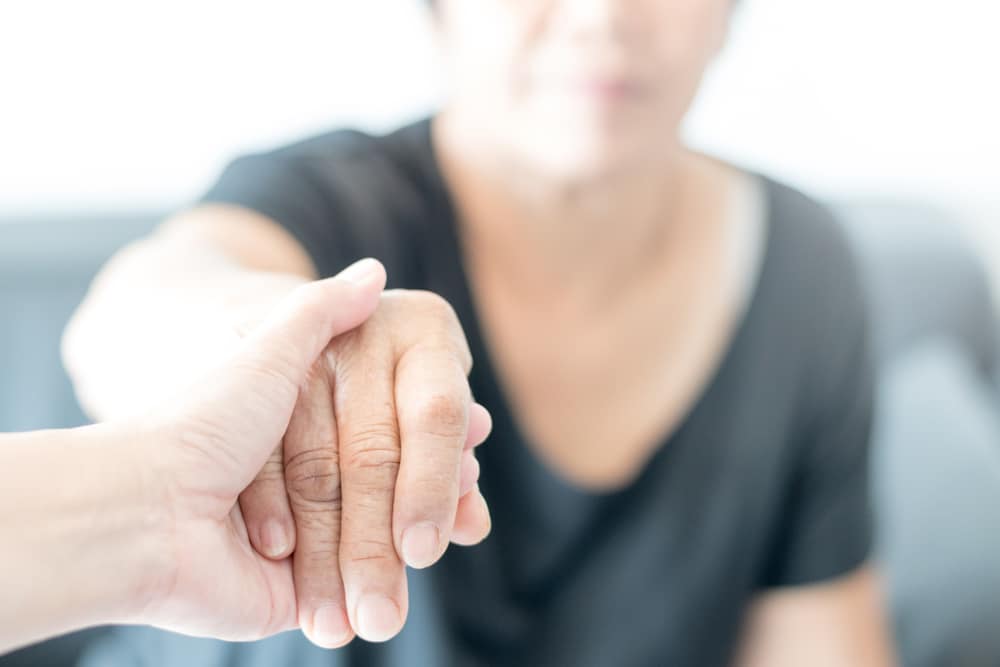
Alzheimer’s Awareness: What Caregivers Need to Know
Alzheimer’s Disease (AD) affects far more people than the six million Americans who are diagnosed with the illness. It also has a substantial impact on the caregivers of AD patients.
It’s estimated that over 16 million Americans – 650,000 in San Diego County alone – are providing unpaid care for a loved one with AD or another form of dementia.
AD caretakers have a very difficult job. In addition to sometimes holding down jobs of their own, they must also provide care for their loved one with AD as well as understand the various stages of the disease and how to handle them.
Here, we outline the crucial information AD caregivers need to know – how to spot progressive symptoms, what to expect at each stage of caregiving and importantly, what you need for proper self-care.
What To Expect As An Alzheimer’s Disease Caregiver
Alzheimer’s is a progressive disease, and symptoms will gradually worsen over time. As such, AD moves in stages – early, middle and late – that will impact the daily lives of both you and your loved one in different ways.
AD typically advances as follows: the early (mild) stage lasts about 2 to 4 years, the middle (moderate) stage can remain for 2 to 10 years and late (severe) stage spans 1 to 3 years. Here is what you can expect at each stage of caregiving.
Early-Stage Caregiving
In the early stage of Alzheimer’s, patients usually start showing signs of forgetfulness. They may not remember the current day or month, recent events or conversations. They will begin to have poor judgment, get disoriented easily in familiar surroundings and may even deny that anything is wrong.
After an AD diagnosis is made, the patient and you as the caregiver will need to begin planning for the future – emotionally, financially and legally. At this stage, you’ll want to focus on the following:
- The disease vs. the patient – You’ll learn to differentiate between the disease and your loved one. In the early stage of AD, caregivers often find themselves getting upset with the patient’s behavior. But know that their erratic disposition is a symptom of the disease – not a purposeful attempt to anger or upset you.
- Emotional support – Both you and the the person diagnosed will need a strong emotional and mental support system through friends, family and/or counseling. AD takes a huge emotional toll on all those involved, and solid, regular support is key to having patience and staying optimistic.
- Clear family roles – As the disease progresses, it will be more difficult – if not impossible – for the AD patient to fulfill family roles like cooking, cleaning, driving or taking care of the finances. Planning now for who will take over these roles in the future will alleviate stress and frustration down the line.
- Financial planning – Like other long-term illnesses, AD care is expensive. It’s critical to review your loved one’s insurance plan, Medicare and Medicaid (if eligible), as well as any other finances and assets to determine how best to approach AD care – now and in the middle-to-late stages.
- Legal planning – Sit down with your loved one and your family to create a Power of Attorney for Finances and Power of Attorney for Healthcare (Advanced Health Care Directive). Both will be necessary as AD progresses, and having clear legal documentation in place will make sure a trusted person will help the patient make all their important decisions going forward.
Middle-Stage Caregiving
In middle-stage AD, you will likely become a full-time caregiver as you take on greater responsibility.
At this stage of the disease, your loved one’s abilities will start to noticeably decline. He or she won’t be able to function independently very well, and will need help with many basic tasks like bathing, dressing, brushing teeth and walking. You will need to think about several things at this stage, including:
- Dealing with challenging behaviors – In middle-stage AD, behavior changes can sometimes move from simple forgetfulness and confusion into violent behavior. It is not uncommon for the AD patient to hit or shout at people. They may also get angry, overreact, or act suspicious or paranoid. Unfortunately, logic and reasoning do not work with dementias. Instead, here are 10 real-life strategies you can employ to deal with these challenging behaviors.
- Respite care – You will need regular breaks, or “respites,” from being a caregiver. Respite care will help with this, giving you the necessary time to step away from the stress of your caregiving duties. Ask a family member, neighbor, friend or hired caregiver to step in and take over your responsibilities when you need a break.
- Safety – AD patients in the middle stage begin to become restless and start wandering – a real problem that threatens their safety. This means you will need to create a secure environment for them to live in. Fortunately, there are professionals who are experienced in effective, comfortable home modification for dementia patients. Talk to your doctor or your local Alzheimerʼs Association for a quality referral in your area.
- Medical care – While the AD patient may have been reliably taking their medication thus far, in the middle stage of the disease they will begin to forget. You will be depended upon to help administer their medication as well as act as a liaison between them and their physician – in many cases, you’ll be responsible for giving their doctor regular status updates. As caregiver, you are an important team member in providing appropriate medical care.
- Plan for assisted care – It’s very natural for AD patients to want to stay in their own home for as long as possible. But usually there comes a time when a more advanced type of care is necessary. Hiring in-home help from a medical professional is one solution. Another is considering residential care outside the home. Many assisted living homes have excellent Memory Care programs designed to meet the specific needs of AD and dementia patients.
Late-Stage Caregiving
Late-stage Alzheimer’s Disease is an extremely distressing event for everyone involved, not least of all for caregivers.
At this point, the AD patient can no longer perform personal care tasks. They also lose the ability to speak, walk, recognize people and places, smile and even swallow. Many late-stage patients spend the majority of their time sleeping and suffer from incontinence as well.
A caregiver’s focus now will be on making their loved one as comfortable as possible in two main ways:
- Placement in a facility – In this stage of the disease, it is nearly impossible for families to care for the AD patient on their own at home. He or she will now require care by a trained medical professional – and the proper facilities and surroundings. Caregivers and their families will want consider a skilled dementia or nursing care facility.
- Hospice care – End-of-life care is one of the most difficult things for families to deal with. Hospice services support individuals at the end of their life, when the person has less than six months to live. Hospice services can include visiting nurses, home care and pain management. There are also hospice support groups for caregivers and their families. Talk to your loved one’s physician for the best options and recommendations for your particular circumstances.
Self-Care for Alzheimer’s Disease Caregivers
Finally, Alzheimer’s caretakers need and deserve self-care to preserve their own emotional and physical well-being.
It’s very common to become so immersed in your loved one’s needs that you sacrifice your own. But know that self-care does not mean being selfish – it is necessary to clear your mind and rest your body. Remember to take the time for:
- Emotional and social support – Being an AD caregiver is a monumental undertaking. Family and friends are a great place to start for support, but you may also want to consider joining a local Alzheimer’s support group that is designed to support the unique needs of caregivers like you.
- Physical activity – Exercise is restorative for the mind, body and soul. Make sure that you do some form of physical activity every day – even if it’s only a short walk or a couple rounds of squats or crunches.
- Nourishment / Time to Enjoy Meals – Eating nutritious, healthy meals will not only boost your immune system and make it easier to care for your loved one, it will also help keep you feeling your best during stressful times.
- Alone Time / Downtime – You deserve some form of relaxation each and every day – and your wellness depends on it. Even if it is only for 20 minutes, take the time to be alone and do something you love like read a book, nap, journal, meditate, stretch or watch your favorite funny TV show.
- Vacations – Maybe it’s not possible to jet off to Hawaii for a week. But even a half- or full-day “mini vacation” does wonders for your mind and body. Go for a long hike, relax on the beach, play a round of golf, do some shopping or go for a spa day. Remember that you are performing an incredible service and support system for your loved one in need, for which they are extremely grateful – even if they aren’t able to communicate it.

Join our Senior Wellness Society for the latest news on Medicare and tips for healthy living in San Diego!
Sign up now ›Are you looking for specialized medical care in San Diego?
Our directory has more than 850 doctors in San Diego County of various specialties who are available to help you.
Find a doctor